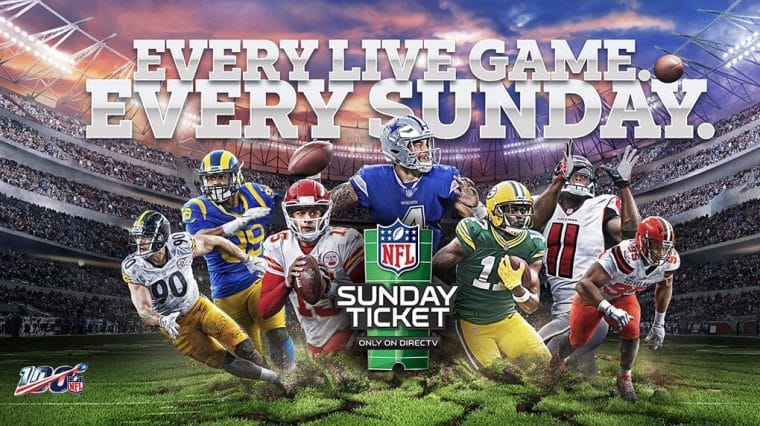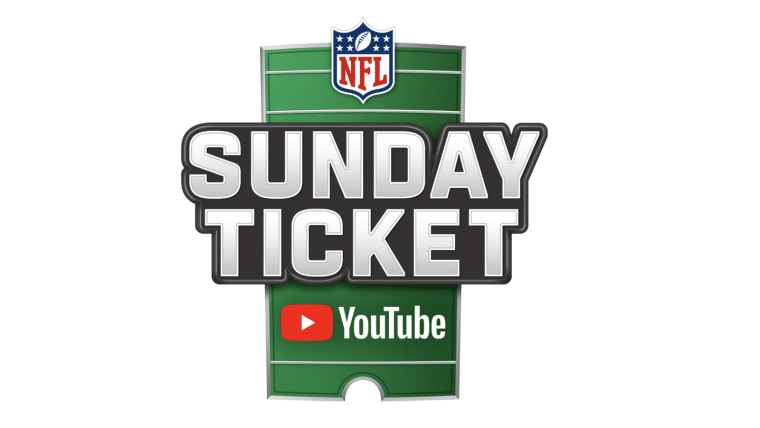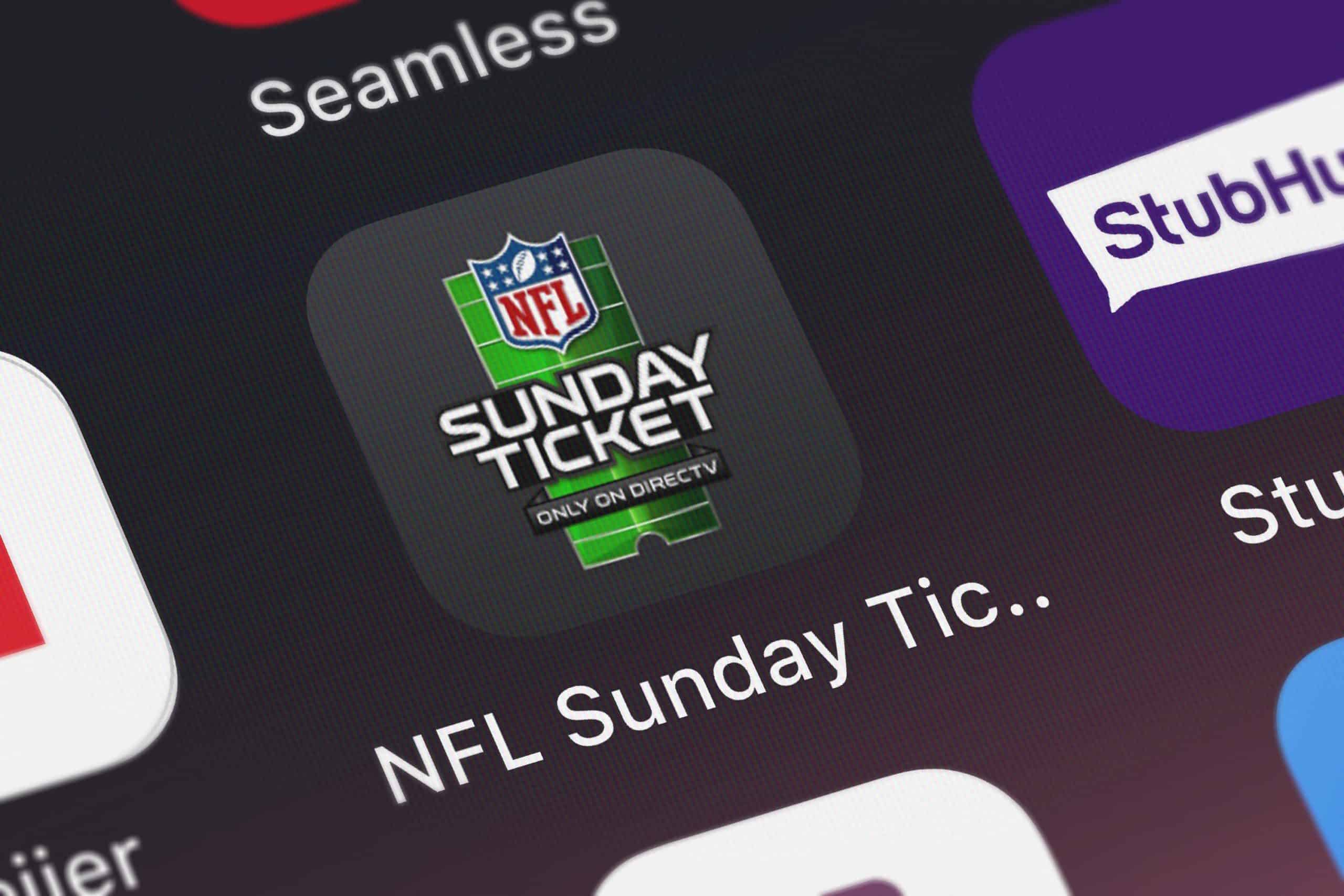A federal jury in Los Angeles ordered the National Football League (NFL) to pay nearly $4.7 billion in damages to consumers for artificially inflating the price of its “Sunday Ticket” subscription services.
The verdict marks the culmination of a long legal battle that started with a class-action lawsuit pushed forward in 2015 by a San Francisco bar named Mucky Duck that used this subscription package to get access to out-of-market games to entertain its customers.
The plaintiff argued that the NFL, in collaboration with network partners, violated antitrust laws by inflating the price of the service and restricting competition by limiting how the games could be distributed.
How Does the Sunday Ticket Work and Why is the NFL Being Sued for It?

The Sunday Ticket package charged customers $300 per season, allowing them to watch out-of-region games that weren’t shown on cable. For example, a LA Rams fan living in the Bronx or anywhere else where Rams games aren’t on cable, is forced to buy Sunday Ticket just to watch their team’s games.
Lawyers who represented the plaintiffs cited an email between the NFL and ESPN where the latter offered to provide access to customers to this package for just $70.
The NFL rejected the offering as it would hurt two of its most important media partners – CBS and Fox – both of which broadcasted the out-of-market games that were offered as part of the Sunday Ticket deal.
Also read: NFL Betting in 2024 – Best Online NFL Sportsbooks
In essence, the NFL exerted monopolistic powers over how these games were distributed as customers could either subscribe to DirecTV’s services or pay for the hefty Sunday Ticket option.
The jury claimed that the league should provide a wider range of options like single-team packages that are cheaper and more affordable to its sizable customer base.
“NFL, Fox, CBS and DirecTV agreed to make an expensive toll road that very few people would be able to afford,” commented Amanda Bonn, the lawyer who represented the plaintiffs in this case.
The NFL’s lawyer, Beth Wilkinson contested the argument by stating: “The case is about choice. This is a valuable, premium product. Think about all the choices available to fans. We want as many people as possible to watch the free broadcasts.”
Nearly 2.5 residential users and 48,000 business subscribers were affected by the NFL’s pricing practices between 2011 and 2022 – the time period covered by the case.
The jury’s decision was broken down into two items. A total of $4.61 billion will be paid to residential customers while business customers are entitled to receive $96.93 million in compensation for the damages they suffered.
However, according to the United States federal antitrust laws, the amount to be paid by the NFL could be much higher to a total exceeding $14 billion. The amount will be divided among the 32 teams that make up the league, resulting in around $147 million in penalties to be paid by each team.
The NFL’s Response and Legal Strategy
The NFL has expressed its disappointment with the jury’s verdict and announced its intention to contest the decision. Brian McCarthy, a league spokesman, stated: “We continue to believe that our media-distribution strategy, which features all NFL games broadcast on free over-the-air television in the markets of the participating teams and national distribution of our most popular games, supplemented by many additional choices including RedZone, Sunday Ticket and NFL+, is by far the most fan-friendly distribution model in all of sports and entertainment.”
The league will opt to appeal the verdict and Judge Philip S. Gutierrez is scheduled to hear the organization’s post-trial motion by the end of July. This includes a motion to rule in favor of the defendant.
If the NFL does not get the district judge to acquit it, it could take the case to the Appeals Court and ultimately turn to the Supreme Court in case the proceedings do go their way in the 9th Circuit.
Also read: The Most Profitable Teams in the NFL Today (Chart)
In an ideal scenario for the NFL, it will not be making any payments until they exhaust all legal avenues to obtain a favorable ruling or reduce the final amount a more bearable figure. This likely means at least one appeal before anything major happens.
“We will certainly contest this decision as we believe that the class-action claims in this case are baseless and without merit. We thank the jury for their time and service and for the guidance and oversight from Judge Gutierrez throughout the trial,” McCarthy further commented.
The NFL maintains that its pricing practice and distribution strategies were fair and offered consumers with multiple choices to access its content.
The league’s attorney, Beth Wilkinson, argued that Sunday Ticket was intentionally priced as a premium product, stating: “The case is about choice. This is a valuable, premium product. Think about all the choices available to fans. We want as many people as possible to watch the free broadcasts.”
The NFL’s Commissioner, Roger Goodell, who was called in to testify during the trial, described the Sunday Ticket product as a premium alternative that offered high-quality content and demanded a higher price to access it.
Implications for Consumers and the Future of Sports Broadcasting
If the verdict stands, it could lead to significant changes in how the NFL distributes out-of-market games. The league may be forced to offer the Sunday Ticket package at a lower price price, making it more accessible to a larger number of fans.
They may also opt to start offering tailored packages or week-by-week deals that resemble alternatives like the NBA League Pass or the MLB.TV service. Ideally, the Sunday Ticket should be made available through various cable providers including streaming platforms and league-owned apps.
Moreover, if the NFL fails to gain the court’s favor, it could affect its deals with CBS, Fox, and NBC which are worth nearly $10 billion a year if they believe their privileges and the exclusivity of the content they broadcast will be affected by this change in the league’s pricing practices and subscription offers.
YouTube Owns Sunday Ticket Now and Charges Even More – Could That Change?

In 2022, Google’s YouTube acquired the exclusive rights to Sunday Ticket for $2.5 billion a year to incorporate this content into its YouTube TV service.
Although the lawsuit only affects DirecTV customers who were subscribed to the service before 2022, it is unclear if the NFL will be able to maintain its deal with the online video streaming platform.
Among the arguments presented by the plaintiffs to provide evidence of the NFL’s monopolistic practices, they claimed that the league restricts access to the package in certain regions to avoid harming the deals they have with CBS and Fox.
Also read: YouTube Is Once Again the Top US Streaming Service – But Is It the Best?
This limited regional access is viewed as an outdated practice that may be changed as a result of this verdict. Currently, YouTube charges $72.99 per month to access Sunday Ticket, which results in an even higher price per season of $349 after the company hiked the price in 2023.
Although fans can still access Sunday Ticket content without subscribing to YouTube TV, they have to pay a much higher price of $449 for the season.
This could all change if YouTube – an app that controls around 10% of the streaming market according to the latest data – is also sued for its monopolistic practices.
This lawsuit could end up reshaping how networks, cable services, streaming platforms, and sports leagues negotiate deals and provide access to their content for consumers. These companies may now opt to offer a wider range of choices to subscribers to avoid being swept into legal battles that are already producing billion-dollar settlement figures that could significantly hurt their finances.
